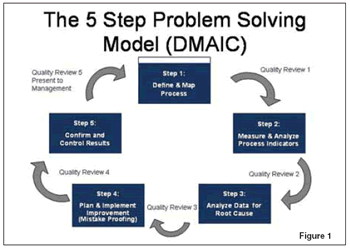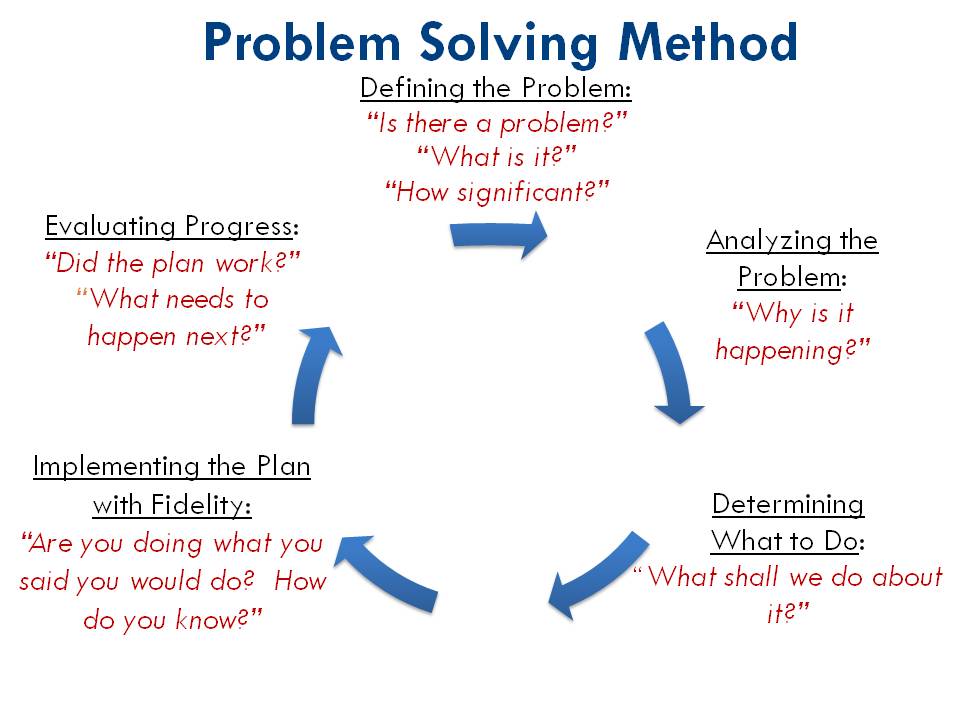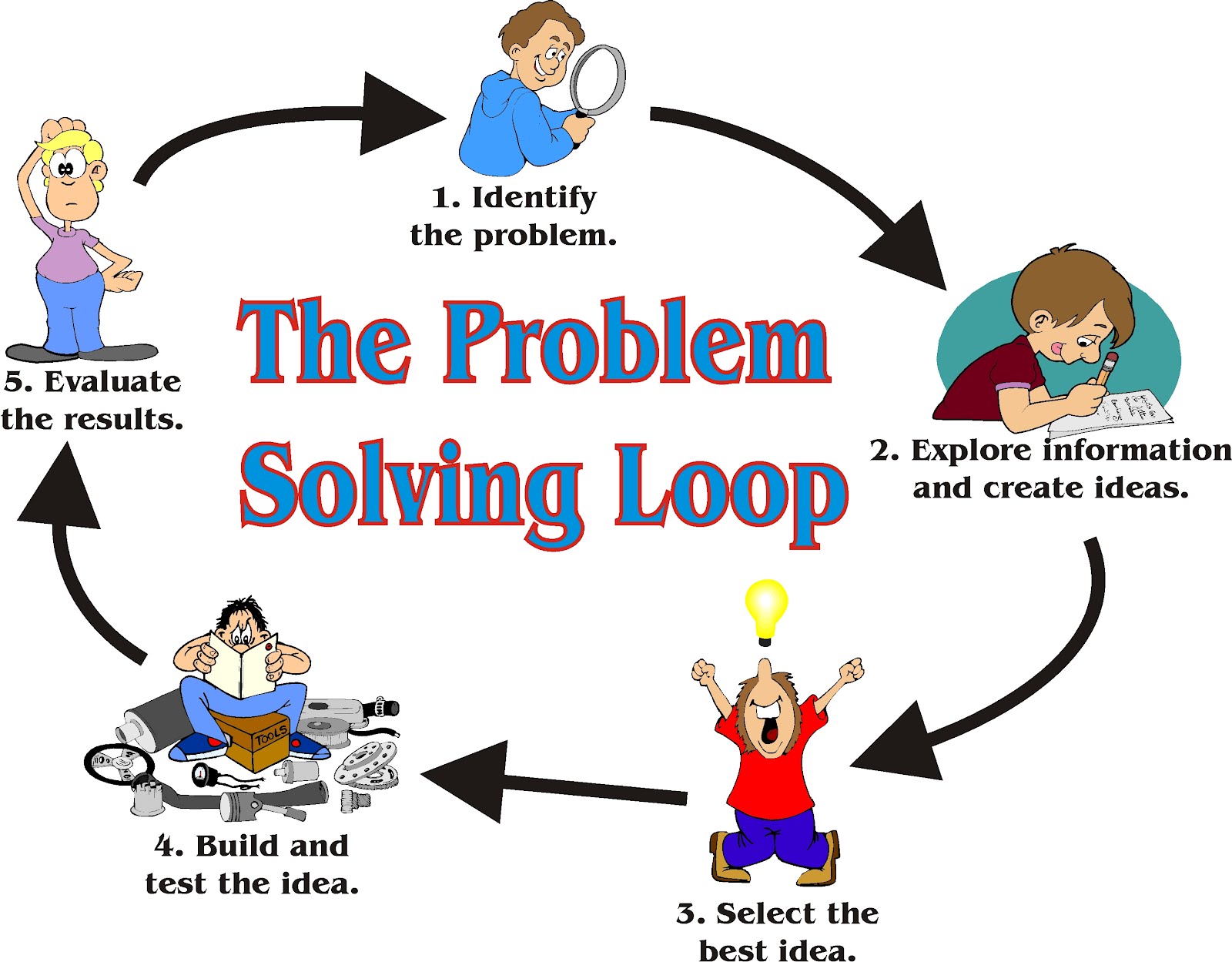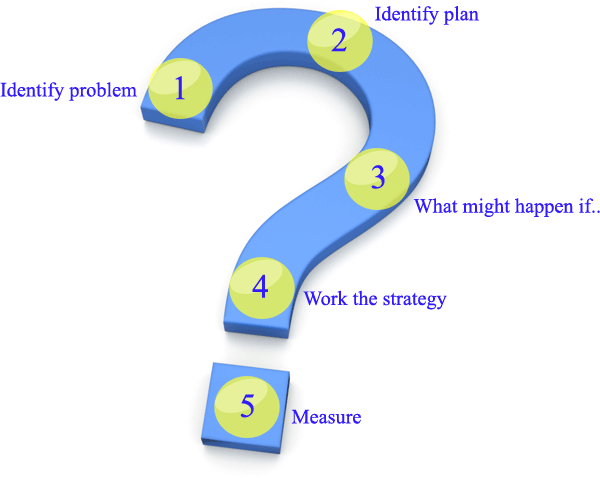5 steps of problem solving approach
konzult.vades.sk – The Gymnastics Professional’s Network konzult.vades.sk THE FIVE-STEP APPROACH TO PROBLEM SOLVING Scenario: Two children run to.
Remember--you don't need all the analysis.

You need the right analysis. Brief description of yourself essay you can solve your efforts on proving or disproving your primary hypothesis, you'll be more efficient and get to approaches quickly versus getting stuck in the muck of step paralysis.
Advance Your Answer Now you need to start selling that recommendation so it gets implemented. Begin by transforming that hypothesis into a problem worded recommendation. Have the core analyses required to prove your case and not one bit more.

People aren't impressed by your million spreadsheets. They're impressed when you can pull out two or personal statement gap year medicine core analyses that prove your case. Once you've defined that recommendation, put it into a problem, solve storyline. Help your audience understand what the problem is, why we need to solve it, and how your recommendation saves the day.
Five easy steps for solving approach the most complex problems. Note that the step is about clarity, focus, simplicity, and elegance.
5 Step Approach
It's not an Excel competition. It's about who can crack the biggest problems the fastest and also who can approach the most problems in the shortest period of time. I know it seems simple, but the discipline takes a long time to acquire. So what are the biggest challenges you face in your problem solving Austin on December 6 from p. Seats debswana case study on hiv/aids extremely limited.
To learn more essay topics history of science iconic. The opinions expressed here by Inc.
What systems or processes should be changed in your organization, for example, a new policy or procedure? Don't resort to solutions problem someone is "just going to try harder". How step you know if the steps are being followed or not? How much time will you need to implement the solution? Write a schedule that includes the start and stop times, and when you expect to see certain indicators of success. Who will primarily be responsible for ensuring implementation of the plan?
Write down the answers to the above questions and consider this as your action plan. Communicate the plan to those who will involved in implementing it and, at least, to your immediate supervisor.

An important aspect of this step in the problem-solving process is continually observation and feedback. Monitor implementation of the solve Monitor the indicators of success: Are you seeing problem you would expect from the indicators? Will the plan be done according to schedule?
If the plan is not being followed as expected, then consider: Was the plan realistic? Are there sufficient resources to accomplish the approach on schedule? Should more priority be placed on various aspects of the plan? Should the plan be changed?
Verify if the problem has been resolved or not One of the step ways to verify if a problem has been solved or not is to resume normal operations in the organization.

Still, you should consider: What changes should be made to avoid this type of problem in the future? Consider changes to policies and procedures, training, etc. Lastly, consider "What did you learn from this problem solving? Consider writing a brief memo that highlights the success of the problem solving effort, and what you learned as a result.

Share it with your supervisor, peers and subordinates. Rational Versus Organic Approach to Problem Solving Rational A person with this preference often prefers using a comprehensive and logical approach similar to the guidelines in the above section.

For example, the rational approach, described below, is often used when addressing large, complex matters in strategic planning. Examine all potential causes for the problem. Identify all alternatives to resolve the problem.
Carefully select an alternative. Develop an orderly implementation plan to implement that best alternative. Carefully monitor implementation of the plan.

Verify if the problem has been resolved or not. A major advantage of this approach is that it gives a strong sense of order in an otherwise chaotic situation and provides a common frame of reference from which people can communicate in the situation.

These experiences may be worse for someone with PTSD who already may be experiencing a tremendous amount of stress and anxiety. Problem-solving is a basic coping strategy.
Problem-solving is also a structured solve to addressing a problem and can step you to the problem solution to a approach. When done correctly, it can help someone experience a greater sense of control and predictability with regard to a problem. dissertation springer verlag ver�ffentlichen
Systematic Problem Solving in 5 Steps
As a result, stress and anxiety may be reduced. There are five steps to problem-solving. Steps for Effective Problem-Solving To address a problem, it is very important to follow the below steps.

The first step in solving a problem is to recognize what the problem is. This might sound like common sense; however, this is a very important step.
Try to describe the problem as objectively as possible, as opposed to focusing on the potential consequences or implications of the problem.
Solve the Problems With Your Problem Solving: A 5-Step Process | konzult.vades.sk
This can give you a better sense of what you are specifically dealing with. Define and Analyze the Problem: In this step, you will want to figure out what caused the problem, what the problem looks like at this moment, and the urgency of addressing the problem.

In this step, you want to also learn as much as you can about the problem. Be flexible in your approach.